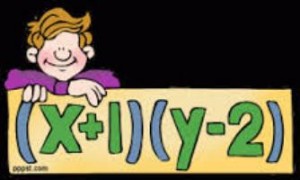
First of all, preparation for algebra can seem daunting for anyone, but when you focus on the key areas that truly help develop a strong math foundation, it is manageable. Many parents and math professionals focus on improving their child’s calculation skills as a major part of preparing for algebra. However, according to a study in the Journal of Educational Psychology, it is more beneficial for students to practice word problems that basic math functions. Being able to read, dissect and solve word problems is a much more cognitive process, and can better prepare students for the real world situations brought up in most algebraic equations.
Problem solving is a skill that is required for success in all areas of math. In algebra, students should feel confident completing one and two-step problems, along with being able to ignore extra information that does not pertain to the problem and filter out what information is important and useful. They should have experience solving problems using a formula given to them.
Teachers, parents and tutors should always incorporate reading practice into every lesson. A student who understands math concepts but has difficulty sounding out words or reading the problem will struggle as much, if not more, than a student who can read fluently but has a weak math understanding. Students should know how to read the question, write their answer, and use and understand statements such as “if-then” when proving their answers and reasoning.
Estimating and reasoning are also two very important skills students should have when preparing for algebra. Things like making sure the units in the answer match the units in the problem.
As students reach higher-level math courses, their understanding of and ability to use a complex calculator becomes very important. Students should be familiar with the functions of a graphing calculator and have the ability to solve simple formulas and create tables.
Algebra doesn’t have to be daunting and overwhelming for students. Teachers, parents and tutors can help them feel confident on their first day of algebra class by making sure they are prepared with the basics beforehand.





